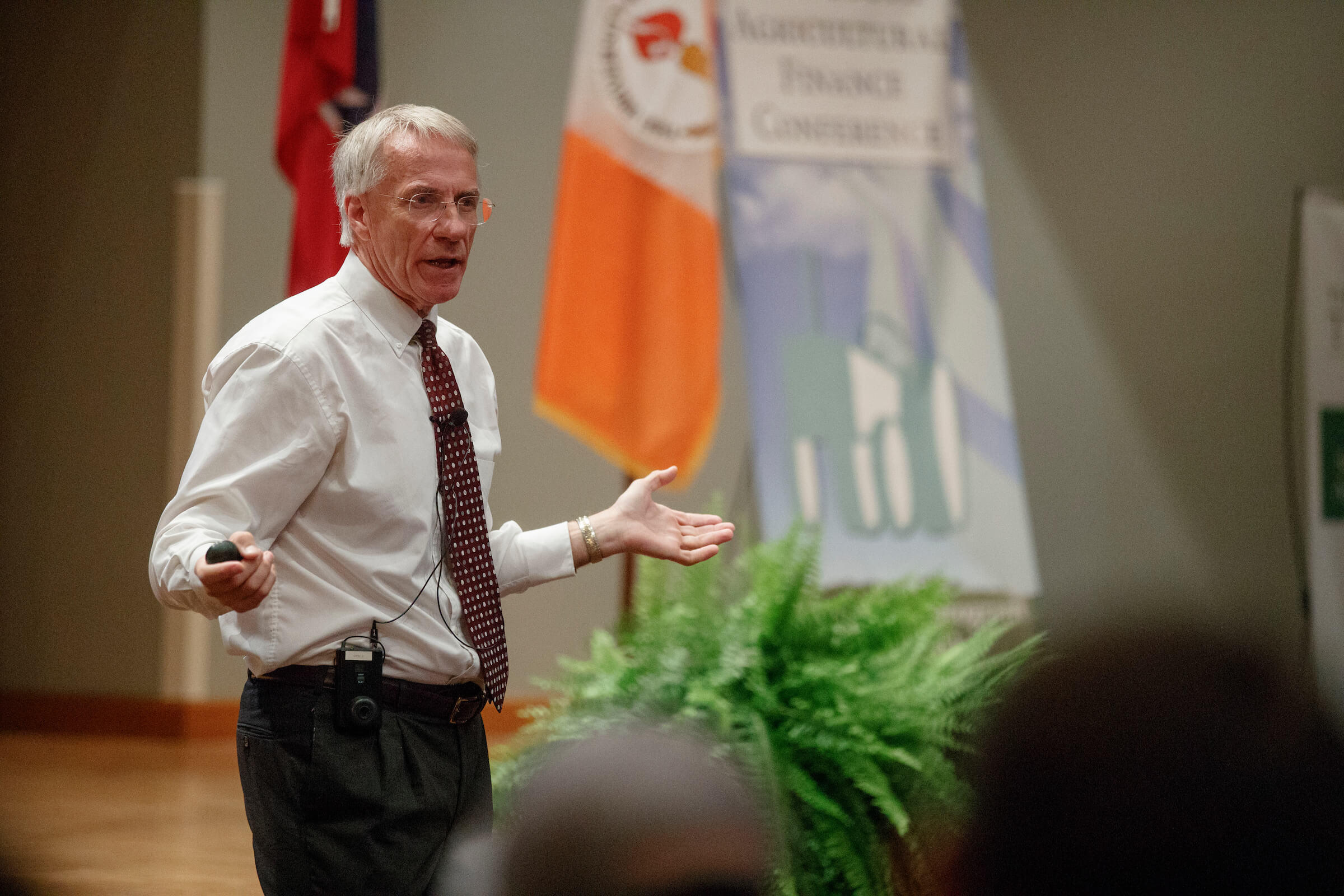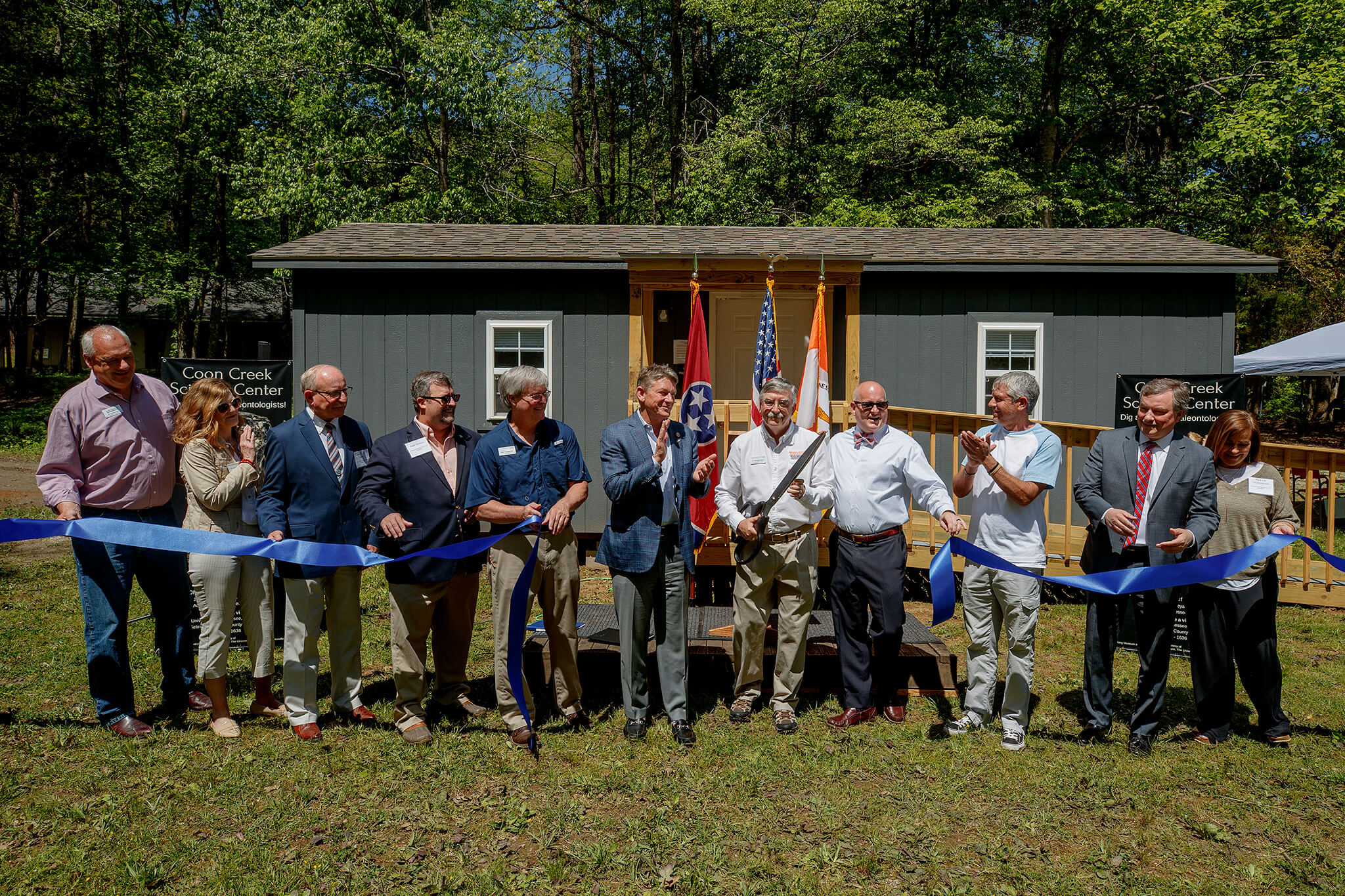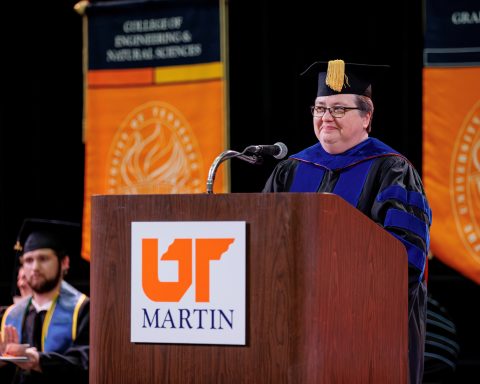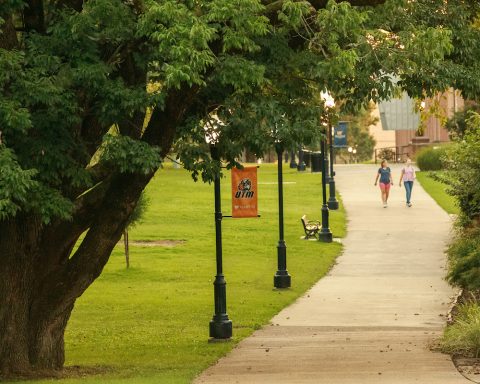Two University of Tennessee at Martin College of Agriculture and Applied Sciences students were selected to present research at the fifth International Conference on Climate Change 2021, which was held virtually Feb. 18-19.
Anna Gafford, a junior agribusiness major from Smyrna, and Montana Wright, a junior veterinary health technology major from Murfreesboro, are undergraduate student researchers for the UT Martin – Murray State Climate Literacy for Agriculture and Sustainable Societies initiative, which is led by UT Martin associate professor of agricultural economics Dr. Rachna Tewari, professor of agricultural economics Dr. Joey Mehlhorn and professor of geology Dr. Mark Simpson. This project is supported in part by the capacity-building grants of the United States Department of Agriculture.
Gafford presented her peer-reviewed paper, “An Initial Study on Calculating Carbon Emissions from Agricultural Production in West Tennessee,” which was co-authored by Tewari. Gafford explained there is little-to-no existing research in West Tennessee focusing on reducing carbon emissions through cropping practices.
“Carbon emissions from various sectors, including agriculture, lead to an increase in greenhouse gas (GHG) emissions, which contributes to climate change. This study aims to determine which tillage practice among conventional and no-till leads to a greater carbon footprint,” Gafford said. “This research also studies different management practices that help sequester carbon in the soil. Soil carbon sequestration helps mitigate the long-term effects of climate change, which will reduce the agricultural sector’s net carbon footprint.”
Wright also presented her peer-reviewed paper, “The Application and Benefits of Climate Data in Research,” which was also co-authored by Tewari. According to Wright, since the climate is changing, it is imperative societies find innovative ways to understand and study fluctuating weather patterns.
“Climate data has the opportunity to be a critical resource that allows stakeholders and the mass population to understand and potentially predict a changing climate,” Wright said. “Understanding the appropriate application and use of climate data allows both the global research community as well as the mass population to have the ability to understand and analyze the data and opens opportunities to collaborate both globally and nationally for projects that are beneficial to society.”
For more information about the papers and presentations, contact Tewari at rtewari@utm.edu.
###











